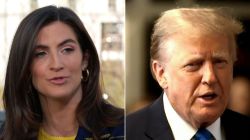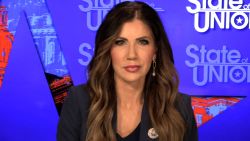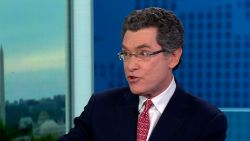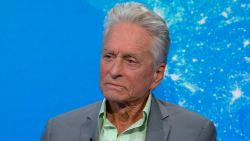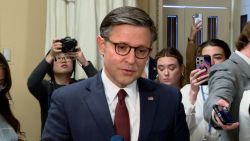The news that President Donald Trump walked away from negotiations with North Korea early and empty-handed led many experts and lawmakers to heave sighs of relief, even as the summit’s abrupt finale raises questions about where things go from here.
Many had worried that the President, eager to score a success and distract from damaging testimony by his former personal lawyer and fixer Michael Cohen, would make a deal that endangered America’s national security and possibly decrease the chances of Pyonyang denuclearization.
According to people familiar with conversations among the President’s senior national security officials, Trump told some advisers ahead of the Hanoi talks that he did not want to appear overly thirsty to secure a deal, hoping to prove wrong the myriad analysts who predicted he’d give away the store to demonstrate some type of progress.
Trump insisted at a press conference that he and North Korean leader Kim Jong Un were executing a “nice walk” away from the table – but what exactly happened in Vietnam isn’t at all clear, as both sides emerged with different stories in the hours after they packed up and headed home.
Trump was unpleasantly surprised by a demand from Kim that all sanctions be lifted on North Korea, according to a person familiar with the negotiations, believing the young despot had come to Hanoi prepared to deal.
But North Korean Foreign Minister Ru Yong Ho offered a contradictory story. “What we proposed was not the removal of all sanctions, but their partial removal,” the North Korean official said, pointing to United Nations sanctions from 2016 and 2017 that “impede the civilian economy and the livelihood of our people.”
In Washington, the anti-climactic end prompted a flood of relief.
‘No deal is better than a bad deal’
“No deal is better than a bad deal,” said Duyeon Kim, a Korea expert at Center for a New American Security. “Lifting key economic sanctions without proportionate denuclearization steps risk losing leverage.”
And even though the odds of success were low, with a mere month for the US team to prepare, many Republicans portrayed the draw as a victory.
“It’s better to walk away than sign a bad deal,” said Sen. Lindsey Graham, a South Carolina Republican and fierce critic of the Kim regime.
“What he did in Hanoi was the right thing to do – he walked away from a bad deal,” former Republican Sen. Rick Santorum told CNN’s “New Day,” adding that this was “a wonderful moment in (Trump’s) presidency.”
Robert Galluci, a former US negotiator with North Korea, said he thought “the outcome was, potentially, perfect … because things I worried about didn’t happen and things I wanted to happen, did happen.”
“I worried that we would make concessions that were not good,” Galluci elaborated in a call arranged by the Stimson Center. He worried Trump would go along with a Chinese and Russian proposal “that we give up joint exercises with the ROK in exchange for the North Koreans giving up further testing of ballistic missiles and nuclear weapons.”
There had been some concern that the US would sign off on a formal end to hostilities with North Korea and, as a result, Trump would agree to pull US troops from the Korean Peninsula.
The President had claimed that the removal of US troops from South Korea was not on the table, but there were still fears that Trump would change his mind at the last minute. During his post-summit press conference he bemoaned – and exaggerated – the cost of maintaining a US military presence.
Instead, Washington and Pyongyang are now at “a pause,” Galluci said. “There will be continuing efforts to go beyond the place we are at. And this is a fine temporary position we’re at.”
Trump had been advised by senior members of his national security team – including Secretary of State Mike Pompeo and national security adviser John Bolton – that he should walk away from the talks if they proved unfruitful, according to an official familiar with the summit.
He was cautioned in the days and even hours leading up to the talks that North Korean negotiators were unprepared to budge on their demands on sanctions during pre-summit talks led by Stephen Biegun, the administration’s special envoy.
Kim as unbending as advertised
Trump still believed he could make something happen in Hanoi, the official said, and was disappointed to learn Kim was just as unbending as advertised.
Despite the warnings, Trump still felt there was a chance Kim would prove reasonable at the negotiating table – perhaps one reason why the White House listed a signing ceremony on the public version of President’s schedule the evening before.
One official later described that as a mistake, since it wasn’t at all clear the two sides would agree to anything during the talks.
Pompeo told reporters after the summit that there had been progress at the working level, even though the US walked away from the summit empty-handed. He explained that a “lot of brush” has been cleared over the last two to three months. The top US diplomat didn’t offer examples.
Pompeo said that he wished they had “gotten a little bit further” in nailing down steps toward the ultimate goal of denuclearization. “It’s been a steady stream of progress towards getting to where we want them to be,” Pompeo said. “We just didn’t get far enough.”
He seemed to intimate that the teams made some progress, telling reporters that, “We all went back and tried to sharpen our pencils and see if we couldn’t get a little further and we actually did.” But he cautioned there will be no quick fixes in what is likely to be a lengthy negotiation.
“It is a long ways, we have always known it was a long ways,” Pompeo said. And at the end of the day, he acknowledged, the potential for real progress is ultimately in the leaders’ hands.
“You don’t know which ones you are actually going to get until the two leaders actually have a chance to get together,” Pompeo said. “There was a lot of preparatory work. We were prepared for the potentiality of this outcome as well. And tomorrow we will get right back at it.”
Missed opportunity for North Korea
On the North Korean side, the abrupt and disappointing end to the Hanoi summit is likely not a deal breaker when it comes to diplomacy with Washington, but is certainly a major setback, said CNN International correspondent Will Ripley, who has visited the country 19 times and interviewed top officials.
“Trump-Kim 2.0 was supposed to help both countries build trust, gain respect and deepen mutual understanding,” Ripley said. “The fact that North Korean foreign ministry officials felt compelled to hold a rare press conference in the middle of the night in Hanoi shows how strongly they felt their position was grossly misrepresented at the podium by Trump.”
Both sides dispute how much the other asked for in the closed-door talks, but Ripley said that while the North Koreans may have been prepared for a vigorous back-and-forth negotiation, “they undoubtedly were shocked by President Trump’s decision to walk out of the talks and cancel a working lunch.”
“Based on what we know about the North Koreans and their negotiating style, they always come to the table well-prepared and they always follow protocol. Above all else, they value the dignity of their Supreme Leader. Kim’s delegation must have been mortified by what could be perceived as a humiliating loss of face,” he added.
“Not only did the US President walk out of the talks, he also snubbed the final meal they were supposed to share together. The table was set and menu prepared for what should’ve been a friendly working lunch ahead of the scheduled joint signing ceremony. Instead the snow fish and banoffee pie turned cold and the table sat empty – a symbol of the wasted opportunity in Hanoi.”
Another get together ‘before too long’
Pompeo said that he believes working level negotiators will get together “before too long,” but added that both sides need to regroup and that there would need to be a reason to meet.
“Look, there has to be a reason for the conversations. There has to be a theory of the case about how to move forward. I’m confident that there is one,” Pompeo said.
Joel Witt, director of the Stimson Center website 38 North, which monitors North Korea, said “I’m not sure where it goes from here.”
One possibility, Witt said, is that “this essentially represents another hinge point, historic hinge point, in our efforts to stop North Korea’s nuclear program, where there may have been a missed opportunity.” Or it could be analogous to the 1986 summit between then President Ronald Reagan and Soviet Union’s leader Mikhail Gorbachev, which eventually led to groundbreaking nuclear arms control treaties.
“I guess we have to watch and see what are the next steps, in terms of re-engaging, maybe at the working level, to try to make some more forward progress.”
In the meantime, Pompeo acknowledged that the nuclear treat North Korea poses is still very real.
“The reason we are having these conversations is because we are concerned about the threat to the world,” Pompeo told reporters. “That is the reason we are after this.”
CNN’s James Griffiths contributed to this report















